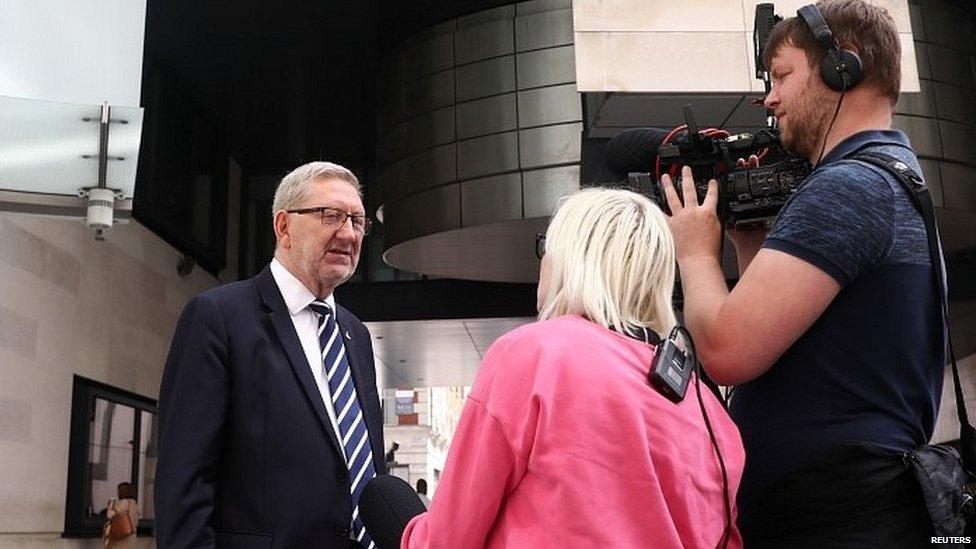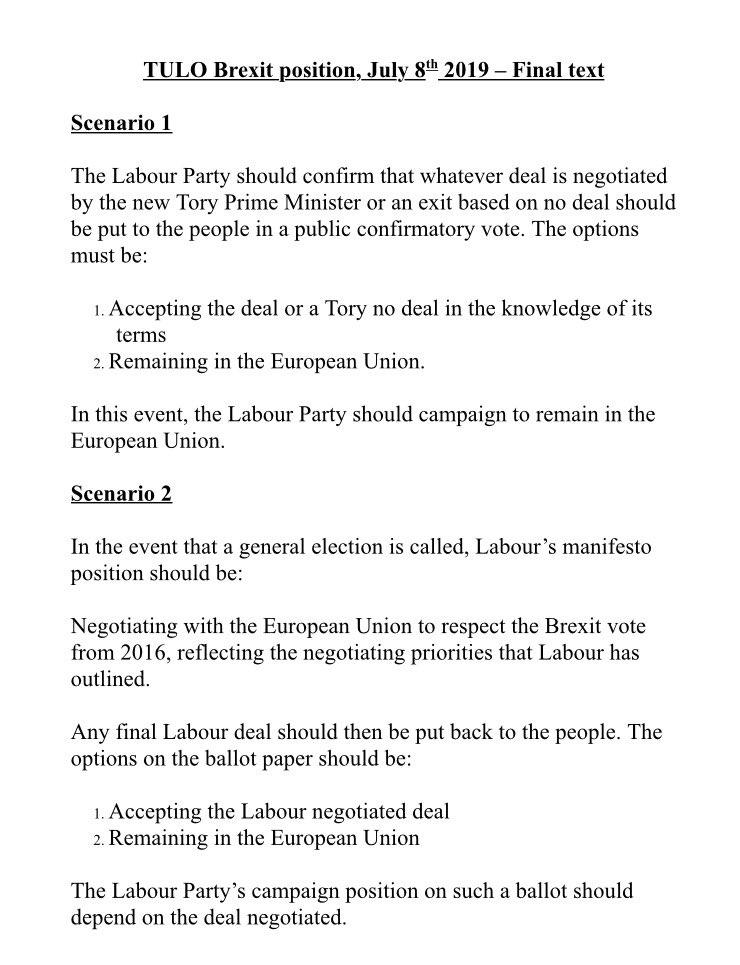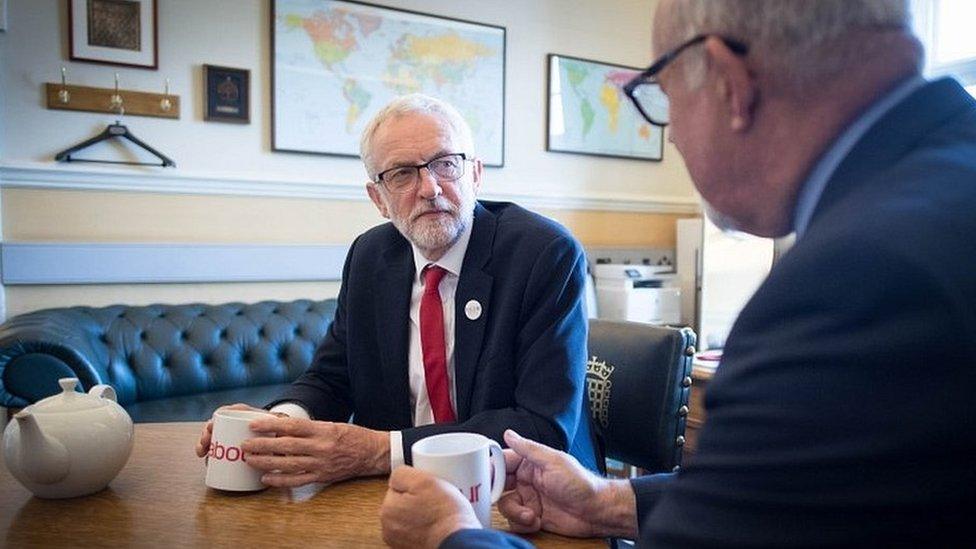Labour affiliated unions agree Brexit vote stance
- Published

Unite boss Len McCluskey helped orchestrate the agreement
Trade union leaders have reached a common position on Brexit following a meeting with Jeremy Corbyn.
The bosses of Labour's five-biggest affiliated unions back a referendum on any deal agreed by the Tory government or a no-deal exit from the EU.
They are calling for voters to be given the option to remain in the EU and expect Labour to formally back remain.
If Labour wins power in a general election, they want a "confirmatory vote" on any new deal negotiated.
However, Labour's stance in a referendum campaign in these circumstances would "depend on the deal negotiated".
Mr Corbyn has faced calls to move policy in a more pro-EU direction.
Deputy leader Tom Watson and other leading figures have called for an unambiguously pro-Remain stance amid criticism that confusion over Labour's message contributed to its poor performance in last month's European parliament elections.
Mr Watson welcomed Monday's agreement as a "step in the right direction" but said his party should not be supporting any form of Brexit.
Allow X content?
This article contains content provided by X. We ask for your permission before anything is loaded, as they may be using cookies and other technologies. You may want to read X’s cookie policy, external and privacy policy, external before accepting. To view this content choose ‘accept and continue’.

In a document seen by the BBC, Unite, Unison, the GMB, CWU and Usdaw appear to have moved towards the position advocated by Mr Watson and others by saying that "remain" should be an option on the ballot paper, and Labour should campaign for it.
In the event of a snap election and a Labour victory, they would expect the new government to negotiate a deal to leave the EU - a position favoured by the Unite union.
However the deal should be put to a confirmatory vote - a position favoured by Unison and the GMB - and in this scenario "remain" should also be an option on the ballot paper.
Mr Corbyn, who pledged to consult the unions before any change in position, has previously said he would be prepared to back a referendum on any Brexit deal put to Parliament.

The text of the document agreed by Labour's five largest affiliated unions
But Mr Corbyn has not guaranteed either to campaign for the UK to stay in the EU or confirmed that this would even be an option on the ballot paper.
The Conservatives said Labour had "no interest in delivering on the referendum result" of 2016.
"Labour promised to respect the Brexit vote, but rerunning the referendum and backing remain would be an attempt to frustrate Brexit and ignore the democratic mandate to deliver it," a spokesman said.


The agreement by the biggest Labour-supporting unions is significant.
The document sets out two scenarios. In the first, there would be a Conservative negotiated deal - or no deal - which Labour would oppose.
Under these circumstances, the unions say Labour should press for a referendum - something which in effect reflects Jeremy Corbyn's current position.
But the unions also say not only should "remain" be an option in any referendum, but that the party should also campaign for it.
This is the position which Labour's deputy leader Tom Watson and others - including the shadow Brexit secretary Sir Keir Starmer - have been pressing the Labour leader to adopt following the loss of votes to the avowedly Remain parties at the European elections.

Significantly, voices on the left too, such as the shadow treasury minister Clive Lewis and some supporters of Momentum, have also been pushing in this direction.
It was thought, though, that the Unite leader Len McCluskey would hold out against campaigning to remain - but he has shifted.
The second scenario, though, offers some comfort for Mr McCluskey and Labour MPs in Leave areas.
If there is a snap election, and Labour forms the next government, then the unions would still expect a Brexit deal to be negotiated.
This deal would be put to the people, but with remain as an alternative.
That should keep most of the party's Remainers on side, though they will want guarantees (that so far these have been spoken about privately not publicly) they would not be prevented from campaigning against a Labour deal and for remain.
But other Remainers are more sceptical. They say that Labour should just ditch the idea of attempting to get a Brexit deal at all. And they worry that any election campaign would be dominated by media questions to Labour MPs on whether they would be prepared to vote against any deal negotiated by their own government.
But the mere fact the unions have made a decision will put fire in the belly of shadow chancellor John McDonnell and some other shadow ministers who have been pushing for Labour to clarify its policy swiftly, before an new Conservative leader is in place.
The question is whether Labour's shadow cabinet officially follows suit on Tuesday - but a potential obstacle to a shift in position has been removed today and makes a policy change all the more likely.